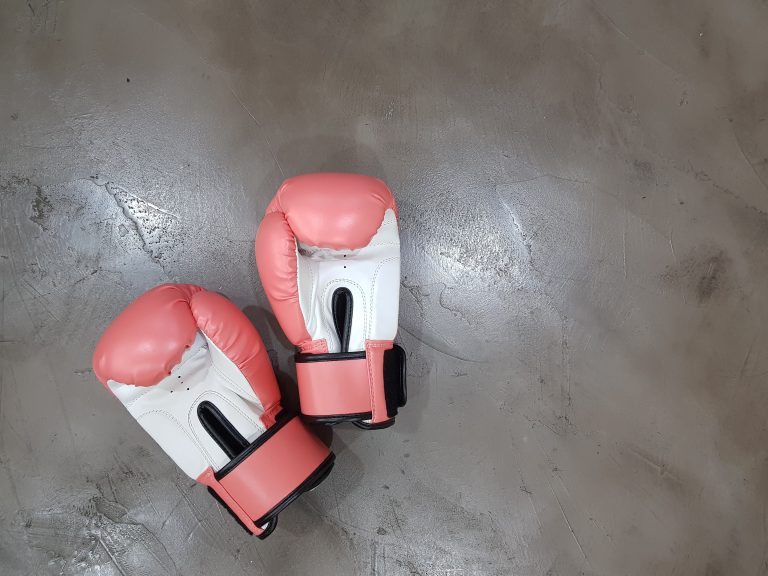Karate Beneficial Effects on Mental Health and Cognitive Ability
Karate is one of the oldest martial arts in the world, and its popularity is still growing today. It has become an important part of modern physical activity and mental health programs, with many people benefiting from the countless benefits of the practice. In particular, karate has been found to have positive effects on mental health, as well as mental and physical well-being.
Mental Health Benefits of Karate
Karate has been found to improve mental health in several ways. First and foremost, karate is a great way to relieve stress and anxiety. The practice allows time to focus on the physical aspects of the activity while also providing an opportunity to sit still and meditate and clear the mind. Through martial arts, students learn the importance of discipline and self-control, both of which can be beneficial in calming a person’s mental state. The physical activity helps to increase dopamine and serotonin levels in the brain, which can improve mood and reduce stress.
Karate can also help improve one’s self-esteem. The physical activity provides a great way to challenge oneself physically, which can lead to feeling more confident and secure. Additionally, karate can facilitate positive thinking, leading to problem solving and improved decision-making. The discipline involved in learning martial arts encourages people to stay committed to their practice and this increased focus on improvement leads to a stronger sense of self-efficacy. This improved self-confidence can greatly aid in dealing with insecurities or self-doubt.
Karate is also a great way to socialize, which can improve one’s mental health. As martial artists work together to perfect their form and movements, they share experience and knowledge, which can lead to strong connections amongst fellow practitioners. This healthy social environment has been proven to reduce loneliness and promote mental well-being.
Cognitive Ability Benefits of Karate
In addition to its effects on mental health, practicing karate can also improve cognitive ability in several ways. Karate movements require individuals to concentrate intently on their form and focus on the details of their motions. This level of focus encourages increased concentration, leading to better attentiveness and strengthened memory recall. Additionally, karate provides many opportunities to new challenges which help to promote creativity and problem solving skills.
The attention to detail that is required in karate can also help with improving visual-spatial awareness. Making sure that each body part is moved correctly requires a strong level of responsiveness, allowing for faster reaction times like those needed for sports activities. All of these benefits can help with making connections between thoughts faster, providing an overall boost in cognitive ability.
Karate has also been linked with increased academic performance in children from age 12-16 by improving attention span and helping with time management skills. This has lead to increased test scores in math, science, language arts and other subjects. Other skills such as visualizing math problems can be improved through karate movements as well as providing a way for students to better retain information by creating a more interesting learning environment.
Conclusion
Karate has numerous benefits for overall mental health as well as cognitive ability. Its physical aspects help to relieve stress, improve self-esteem and encourage socialization, while the discipline involved teaches important life skills such as decision-making and problem solving. Both adults and children alike can benefit from the countless advantages that come with practicing karate on both a physical and mental level.
References
- Psychology Today – The Mindful Benefits of Karate
- Very Well Mind – Martial Arts And Mental Health
- Parents – How Karate Benefits Children
- Mayo Clinic – How Martial Arts Can Help Improve Children’s Cognitive Skills
- Unspoken Words Magazine – Mental Health Benefits from the Martial Arts
Karate Beneficial Effects on Mental Health and Cognitive Ability: FAQs
Karate is a martial art that originated in Japan and has become an increasingly popular form of physical activity, self-defense, and mental discipline around the world. Apart from its physical benefits, karate is also believed to have beneficial effects on one’s mental health and cognitive ability. In this post, we’ll cover some of the most frequently asked questions about karate’s effects on mental well-being and cognitive function.
1. How does practicing karate benefit mental health?
Karate practice involves a combination of physical activity, discipline, focus, and meditation. These elements of karate training have been shown to have several positive effects on mental health, including:
- Reducing stress levels
- Decreasing symptoms of anxiety and depression
- Improving mood and self-esteem
- Increasing relaxation and mindfulness
- Enhancing social connections and support
Studies suggest that regular karate practice can lead to significant improvements in mental well-being, similar to other mind-body practices like yoga and meditation.
2. How does karate affect cognitive ability?
Karate training has been shown to have several positive effects on cognitive function, including:
- Improving attention and focus
- Enhancing working memory and cognitive flexibility
- Increasing spatial and temporal awareness
- Boosting decision-making and problem-solving abilities
- Reducing age-related cognitive decline
These cognitive benefits of karate are believed to be due to the combination of physical activity, mental discipline, and repetitive practice that are inherent in this martial art.
3. How long does it take to see the benefits of karate practice on mental health and cognitive ability?
The timing and extent of the benefits of karate practice on mental health and cognitive ability may vary depending on several factors, such as the frequency and intensity of practice, the individual’s age and health status, and the duration of practice. However, many studies have shown that even short-term karate training can lead to noticeable improvements in mental well-being, such as decreased stress levels and increased mood and self-esteem. Cognitive benefits may take longer to manifest and may require longer-term training and practice.
4. Is karate a suitable form of exercise for people with mental health conditions?
Karate can be a beneficial form of exercise for people with mental health conditions, such as anxiety, depression, and stress. However, it’s important to note that karate practice may not be suitable for everyone, especially those with physical limitations, chronic health conditions, or severe mental health disorders. It’s always recommended to consult a healthcare professional before starting any new exercise routine, especially if you have a pre-existing medical or mental health condition.
5. What are some of the common challenges in practicing karate for mental health and cognitive benefits?
Like any form of physical or mental training, karate practice may come with its own set of challenges, such as:
- Physical discomfort, pain, and injuries
- Mental and emotional strain and fatigue
- Boredom and lack of motivation
- Difficulty in mastering techniques and skills
- Stress from competition and performance pressure
It’s important to approach these challenges with self-compassion, patience, and perseverance, and to seek guidance and support from a qualified karate instructor or mental health professional as needed.
6. How can one incorporate karate practice into their daily routine for mental health and cognitive benefits?
Incorporating karate practice into your daily routine can be a flexible and rewarding way to improve your mental health and cognitive ability. Some tips for getting started include:
- Find a qualified karate instructor who understands the importance of mental health and cognitive benefits.
- Start with short, manageable practice sessions and gradually increase the duration and intensity over time.
- Set realistic goals and track your progress to stay motivated and focused.
- Integrate mindfulness and meditation techniques into your karate practice to enhance relaxation and focus.
- Practice outside of class, either in a group or individually, to reinforce your skills and improve mental discipline.
Karate practice can be a fun, challenging, and rewarding experience that offers numerous mental health, cognitive, and physical benefits. By approaching karate practice with a mindful and disciplined attitude, you can harness its potential to enhance your well-being and quality of life.
Inhaltsverzeichnis






